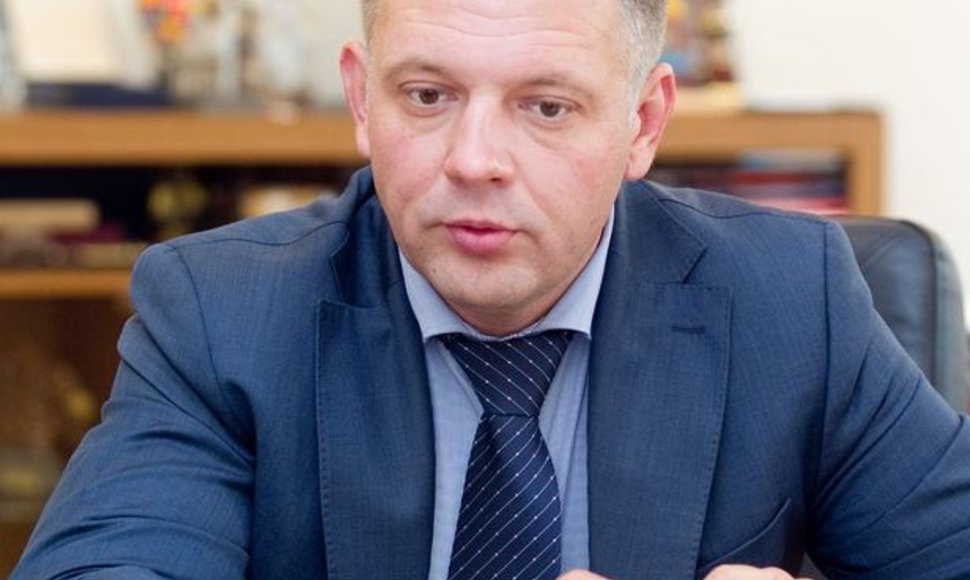In the discussion on foreign policy and national minority matters held during the live electoral television debates on Sunday, leaders of other parties did not elaborate on the matters, which are often raised by politicians representing the local Polish community and the official Warsaw behind them.
"We should adopt the laws as soon as possible that would allow putting street signs in two languages, it also applies to pelling names in personal documents. Liberals have always been in support of this, and not because this is something requested by the Polish minority, it is because a name is a person's private property, and the state or its administration has no right to mangle it," Liberal Movement's leader Eligijus Masiulis said during the live debate organized by BNS news agency and Lietuvos Rytas Television on Sunday evening.
Prime Minister Andrius Kubilius, leader of the ruling Homeland Union – Lithuanian Christian Democrats (conservatives), emphasized that his government had proposed allowing the use of non-Lithuanian Latin characters, but the bill was voted down in parliament, including opposition politicians.
The prime minister also noted that name-spelling issue should be viewed in the light of the position of the Constitutional Court.
"Our government is the first in 20 years to propose a way of solving the name-spelling matter. Unfortunately, merely one member of the Labor Party cast his vote, and merely one member of the Social Democrats. We should here come up with a consensus, as we should not forget the Constitutional Court's opinion that should be somehow assessed before finding the necessary solutions," Kubilius said.
The Social Democratic Party's leader Algirdas Butkevičius accused the right-wing government of souring relations with Poland and other neighboring states, emphasizing its failure to set up a task force envisaged in a two-country agreement.
The Labor Party's representatives said at the debates they saw no problems in connection to the issues raised by the Polish activists.
"This is an exaggerated problem, there is no particular problem here (...). About the street names and other things – we live in Lithuania and have the Lithuanian language. The Russian population is about the same size here, about 6.5 percent, so Russians could go raising the same problems as Poles do. I think there are no problems here, we have to live in a friendly manner, as we live in Lithuania," Vydas Gedvilas of the Labor Party said.
Valentinas Mazuronis, vice-chairman of the Order and Justice party, said issues of national minorities should not be addressed on the bilateral level, as they are an internal affair of Lithuania.
"I believe the main problems we have with Poland – I do not like the concept of national minorities – are caused by the problems raised by citizens of our country in our country. Here I really think we should agree on the street signs with them – the signs in the official language can be bigger and smaller, just as on the spelling (of names) in one (passport) page or another," Mazuronis said.
Some members of Lithuania's Polish community want to have their first and last names in official documents spelled in original characters including the non-Lithuanian characters, such as w. The Poles also want street signs in places with dominating national minority populations to be spelled in the language of that minority, in addition to Lithuanian, the official language of the country.












